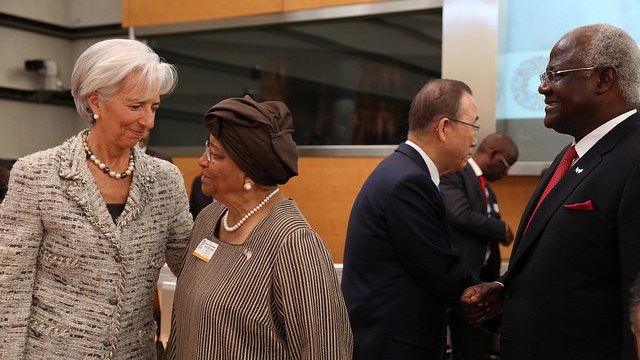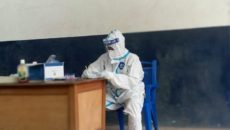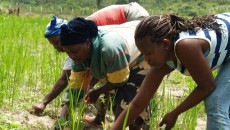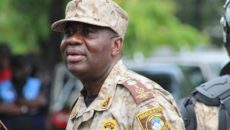WASHINGTON, DC – President Ellen Johnson Sirleaf presented her post-Ebola recovery plans at the 2015 World Bank Spring Meetings. She spoke on Friday morning at a high-level roundtable featuring the heads of state of Guinea and Sierra Leone.
Sirleaf repeated similar talking points from her April 1 address to the nation in which she described the difficult decisions Liberia had to make to cope with Ebola.
The Liberian president thanked her international partners for their support throughout the outbreak and highlighted the struggles Liberia would face in recovering.
She said in addition to the Ebola outbreak, there had been a sharp decline in the global prices of the country’s top commodities. Liberia’s economy is now doing poorly because of the reduction in its trade with other countries.
A World Bank report released on April 15 gave a dire update of the economic situation in the region. Although Liberia weathered the Ebola outbreak the best of the three Mano River Union countries, its 3% growth rate is still below pre-Ebola estimates of 6.8%.
The report said Sierra Leone is currently in a recession as the economy contracted by 23.5%. Guinea’s economy is also expected to contract by 0.2%.

President Sirleaf chats with the IMF head, Christine Lagarde, as her Sierra Leonean counterpart, Ernest Bai Koroma, watches. Photo: Dominic Chavez / World Bank
Against this backdrop, Sirleaf announced a two-year “Marshall Plan†for the Mano River Union countries that were affected by Ebola. The original Marshall Plan was an aid effort initiated by the United States to help European economies rebuild after the devastation of World War II.
The MRU plan is meant to get all countries to zero cases of Ebola and to then build more resilient healthcare systems. Sirleaf estimated the cost at US$8 billion for all three countries. She also asked her international partners to provide additional resources to help them achieve the goal.
After stating her plan and requests, the president said, “Is this asking too much? We say no.â€
Given the nature of the meeting, Sirleaf did not provide many details of the plan or how they would ensure that the funds will be spent appropriately. Liberia’s General Auditing Commission released a report that said there were financial irregularities with approximately US$800,000 of the US$10 million spent from the Ebola.
In addition to requesting funding for the MRU recovery plan, Sirleaf also requested debt relief from the World Bank.
Earlier in the day, the World Bank Group announced US$650 million more to help Liberia, Sierra Leone and Guinea recover from Ebola, bringing the total amount allocated for Ebola relief to US$1.6 billion.
This is in addition to the US$2.17 billion in debt relief that was provided to the three countries, with Liberia benefiting from a US$464.7 million share of that.
A recording of the meeting is presented below:
Featured photo:Â Dominic Chavez / World Bank



